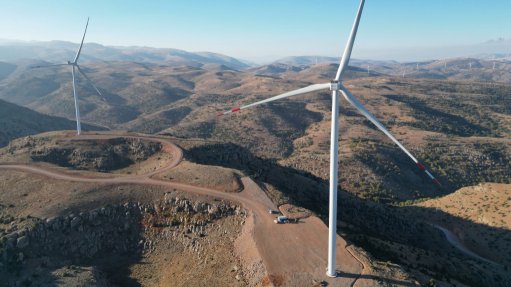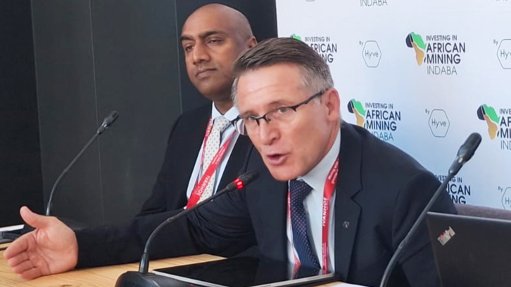Uncivilised asylum plan
I have never made any bones about my dislike for former British Prime Minister Boris Johnson – not after the racist comments about Africans that he made in newspaper columns during his time as a journalist. He had no qualms about calling our children piccaninnies – an offensive term for a small black child – and once infamously wrote that Africa “may be a blot, but it is not a blot upon our conscience; the problem is not that we were once in charge, but that we are not in charge anymore”.
His premature departure from office in September last year and the very dramatic exit of his successor, Liz Truss, after only 44 days in the job paved the way for the ascension of Rishi Sunak, raising hopes that the era of obnoxious views, let alone policies, had ended with Johnson’s forced resignation.
Disappointingly, Sunak has elected to forge ahead with a Johnson-era plan to round up the tens of thousands of people who enter the UK illegally each year and dispatch them to Rwanda on a one-way ticket to apply for asylum there, despite the protestations of human rights campaigners. Successful applicants would be encouraged to stay in the East African country.
The UK government under the Premiership of Johnson and now Sunak argued that the plan, in terms of which Rwanda would receive $145-million over the first five years, would serve as a deterrent to illegal immigration to Britain. According to official statistics, there were about 35 000 “irregular” entries into the UK in 2021, with a majority of about 28 000 arriving by boat from across the English Channel. This represents a dramatic increase from about 8 500 in 2020 and just 2000 in 2019.
The stress factors that prompt people to flee their home countries are varied and include the brutality of conflicts in places such as Yemen and Syria, as well as authoritarianism, poverty, the absence of economic opportunities and unemployment in many countries in Africa and elsewhere.
While it’s understandable that the arrival of 35 000-odd asylum seekers on its shores each year represents a huge burden on the UK, the deal with Rwanda certainly shouldn’t be an option in a civilised world. Regrettably, the British High Court doesn’t see anything major that’s wrong with the plan, deciding to give it the thumbs up in a judgment delivered in December last year. But the Court of Appeal holds a different view, concluding by a majority of two to one last month that Rwanda could not be regarded as a safe third country. However, it is early days to celebrate this victory, as the UK government plans to lodge an appeal.
As I’ve said before, this plan is rotten and Rwanda is certainly not a good choice for the planned relocation, given its limited land area. But a bigger concern is its track record as a third-country recipient of asylum seekers. The East African country, along with neighbouring Uganda, received an estimated 4 000 Africans deported from Israel under a so-called voluntary departure scheme between 2014 and 2017, and Britain’s The Guardian newspaper reported in January last year that almost all had left almost immediately, with many attempting to make their way to Europe with the assistance of people smugglers.
What’s more, one deportee who was tracked down by Israel’s Haaretz newspaper in 2018 described being destitute and living on the streets of the Rwandan capital, Kigali.
The Israel-Rwanda deal was shrouded in secrecy, with Rwandan officials denying their government’s involvement. Details of the scheme, however, were thrust into the spotlight when, in 2018, the Israeli Supreme Court was considering whether to approve a compulsory programme that would offer African migrants the option of a financially incentivised deportation to an African country or face indefinite detention.
Article Enquiry
Email Article
Save Article
Feedback
To advertise email advertising@creamermedia.co.za or click here
Comments
Announcements
What's On
Subscribe to improve your user experience...
Option 1 (equivalent of R125 a month):
Receive a weekly copy of Creamer Media's Engineering News & Mining Weekly magazine
(print copy for those in South Africa and e-magazine for those outside of South Africa)
Receive daily email newsletters
Access to full search results
Access archive of magazine back copies
Access to Projects in Progress
Access to ONE Research Report of your choice in PDF format
Option 2 (equivalent of R375 a month):
All benefits from Option 1
PLUS
Access to Creamer Media's Research Channel Africa for ALL Research Reports, in PDF format, on various industrial and mining sectors
including Electricity; Water; Energy Transition; Hydrogen; Roads, Rail and Ports; Coal; Gold; Platinum; Battery Metals; etc.
Already a subscriber?
Forgotten your password?
Receive weekly copy of Creamer Media's Engineering News & Mining Weekly magazine (print copy for those in South Africa and e-magazine for those outside of South Africa)
➕
Recieve daily email newsletters
➕
Access to full search results
➕
Access archive of magazine back copies
➕
Access to Projects in Progress
➕
Access to ONE Research Report of your choice in PDF format
RESEARCH CHANNEL AFRICA
R4500 (equivalent of R375 a month)
SUBSCRIBEAll benefits from Option 1
➕
Access to Creamer Media's Research Channel Africa for ALL Research Reports on various industrial and mining sectors, in PDF format, including on:
Electricity
➕
Water
➕
Energy Transition
➕
Hydrogen
➕
Roads, Rail and Ports
➕
Coal
➕
Gold
➕
Platinum
➕
Battery Metals
➕
etc.
Receive all benefits from Option 1 or Option 2 delivered to numerous people at your company
➕
Multiple User names and Passwords for simultaneous log-ins
➕
Intranet integration access to all in your organisation


















